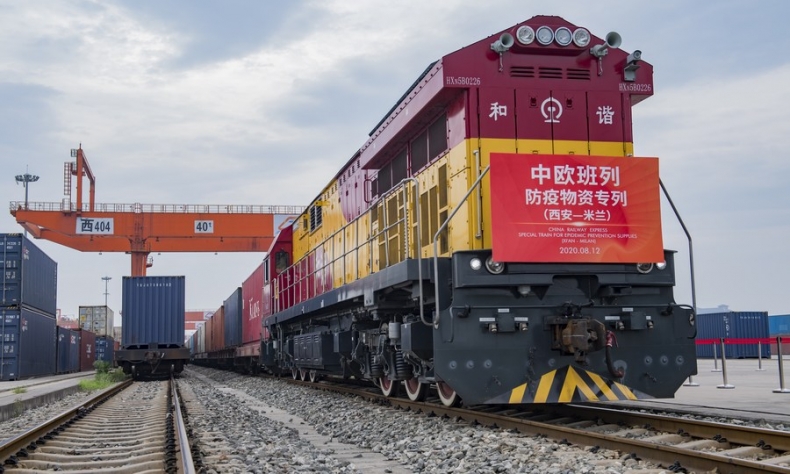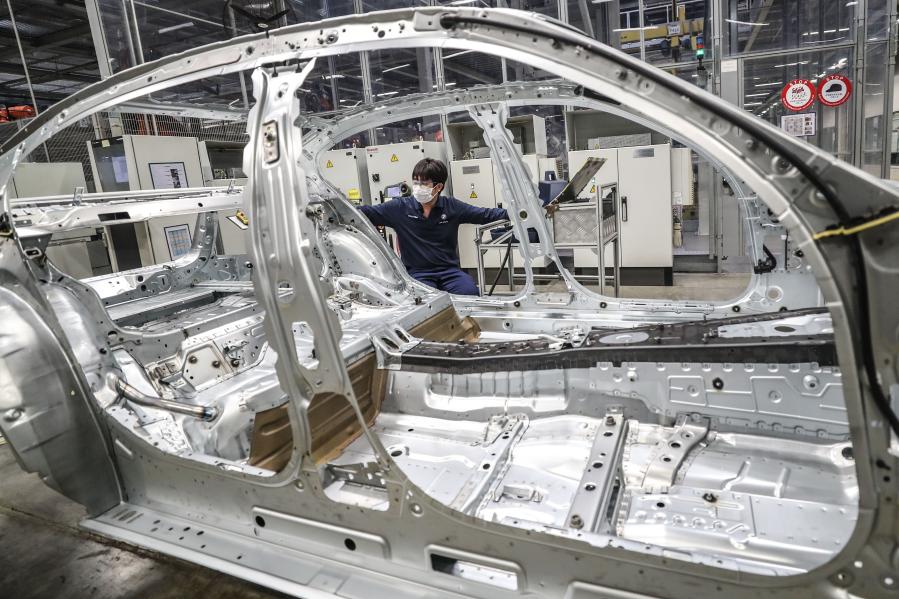Partnership Through Pragmatism

It is possible to envisage outcomes where competition will not lead to confrontation, but rather to an internationally accepted balance.
The Sino-European relationship has been relatively harmonious for approximately 30 years since the end of the Cold War. Differing political ideologies and some disagreements have not reduced either side’s appetite for cooperation. Last year was difficult and intense in comparison to previous ones, due to the European Parliament’s non-ratification of a comprehensive EU-China investment agreement, frictions regarding contradictory interpretations of human rights, and the China-Lithuania feud on Taiwan-related issues. Trade, however, remained the driving force of bilateral relations. According to Eurostat, EU exports of goods to China between January and November 2021 rose by 11.4 percent year on year. The bloc’s imports from China also increased by 20.1 percent. China was the biggest source of European imports and the third biggest destination for it exports, after the U.S. and the UK.
All-round interconnectivity fosters strong Sino-European economic links. Chinese customs data showed that freight trains from China to Europe made 15,000 trips in 2021, a 22-percent increase from 2020. Tourism is another important factor shaping the economic partnership. China ranks second among all out-of-region outbound travel markets to European destinations, according to the European Travel Commission. Although the number of tourists declined in 2020 and 2021 due to the persistence of the COVID-19 pandemic, a safer epidemiological situation will boost tourism recovery on the medium term.
China and the EU both support multilateralism in a changing world. Their collaboration covers themes such as climate change; the EU, for instance, emphasized the first phase of the UN Biodiversity Conference (COP15) in Kunming, Yunnan Province in southwest China, in October 2021. Having already adopted its own biodiversity strategy for 2030, the EU strives to join forces with its partners and take drastic action to respond to the loss of biodiversity, an existential threat to humanity. It is therefore looking forward to the second phase of the conference, which will take place in the same Chinese city this April.

Beyond multilateral fora, China and the EU have already completed two rounds of environment and climate dialogue. During their most recent meeting in October 2021, they recognized, among other things, that acceleration of the development of alternatives to fossil fuel energies would allow them to meet the Paris Agreement’s goal of keeping the global temperature rise this century well below 2 degrees Celsius above pre-industrial levels. They also committed to discuss policies, measures and technologies to decarbonize industry and power generation.
Both sides are also building synergies around science and technology, and a high-level innovation cooperation dialogue had already been launched in 2012. In September 2020, Beijing and Brussels took their partnership to a higher level and initiated a similar type of conversation on digital affairs. They understand the vital contribution technology makes to the achievement of the UN Sustainable Development Goals and to qualitative growth across the globe. Deeper discussions are also necessary in relation to ethical and privacy considerations arising from the evolution of artificial intelligence.
The list of areas and themes where China and the EU are able to work together does not stop there; it is long and multifaceted. Above all, it draws upon their shared interests in securing a global recovery from the COVID-19 pandemic by closing the immunization gap and cementing growth, especially in the developing world. The most important lesson of the ongoing coronavirus tragedy is that problems are acquiring a transnational nature. Good coordination subsequently emerges as a panacea.
Problems marking Sino-European relations in 2021 are not to be ignored. Theoretically, they have the capacity to render Beijing and Brussels better equipped to understand each other in a changing world. Systematic dialogue, also at the bilateral level, as the recent phone call between Chinese President Xi Jinping and French President Emmanuel Macron displays, is imperative. It is impossible to imagine a world where competition might cease to exist. It is possible, however, to envisage outcomes where competition will not lead to confrontation, but rather to an internationally accepted balance. In that regard, the China-proposed Belt and Road Initiative and the EU’s Global Gateway investment plan, for example, can overlap—in spite of often clashing business interests—in a spirit of boosting much desired global prosperity.
It’s all about setting priorities. The responsibility of leaders is to demonstrate agile moves and not allow power politics to cause dystopia.
The author is EU-China Program director at the Centre International de Formation Européenne.
 Facebook
Facebook
 Twitter
Twitter
 Linkedin
Linkedin
 Google +
Google +










